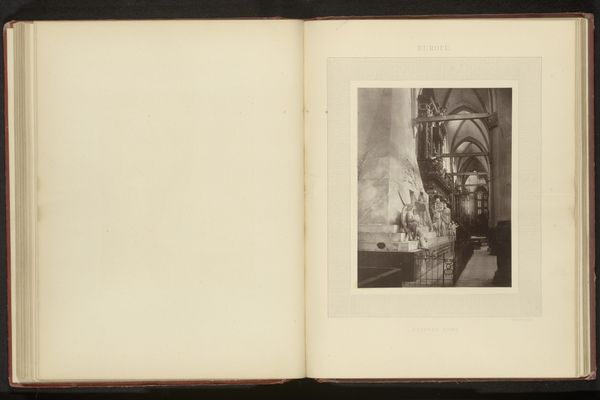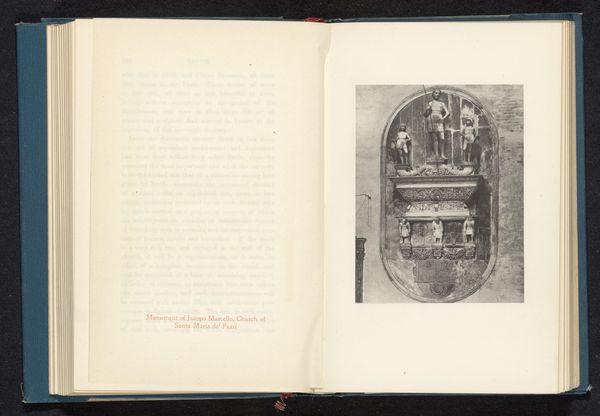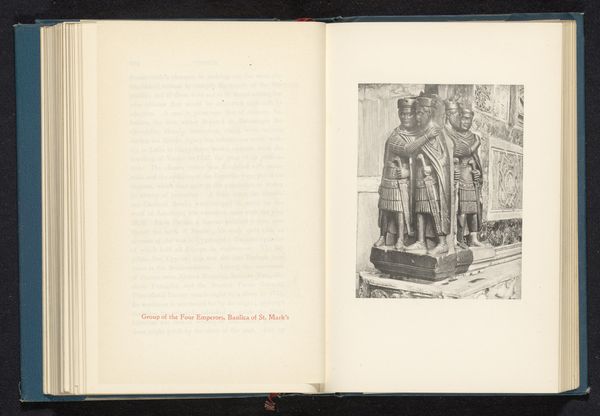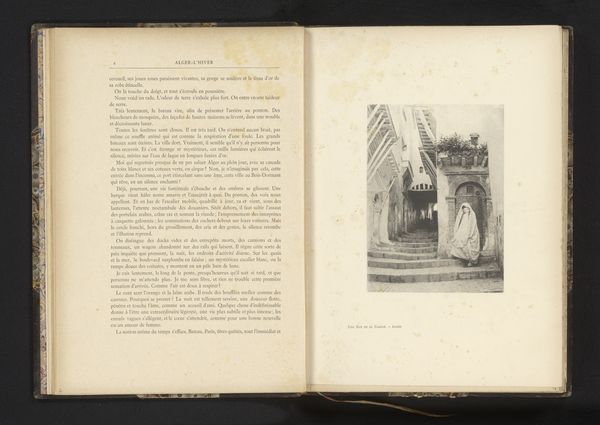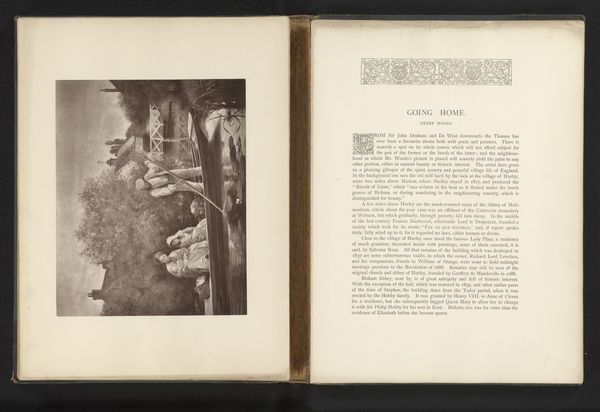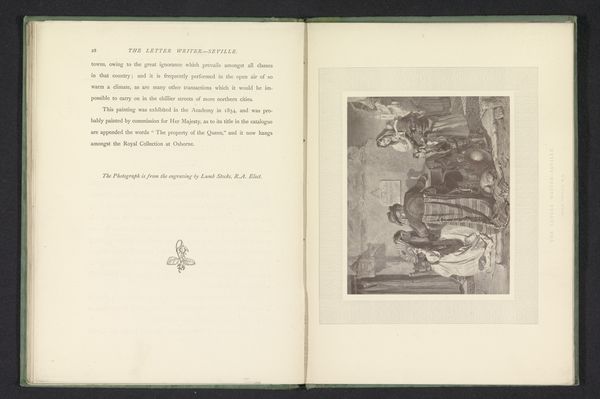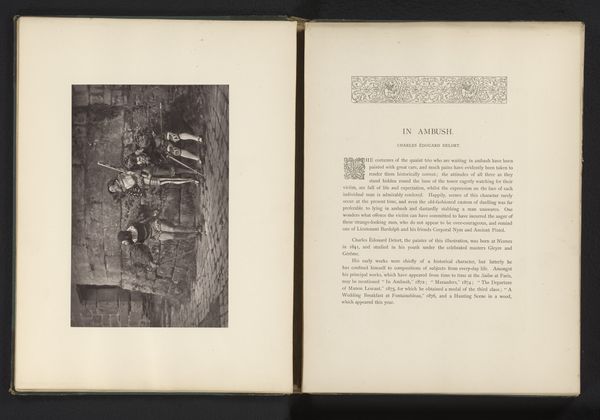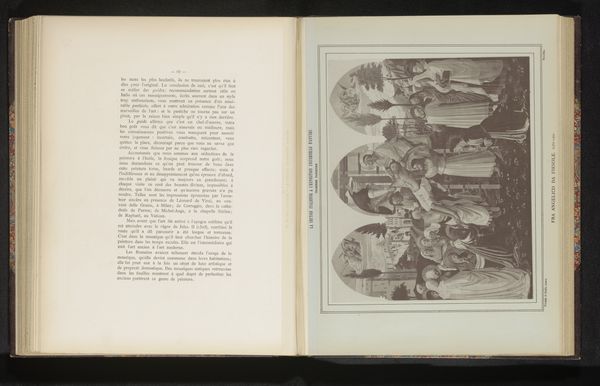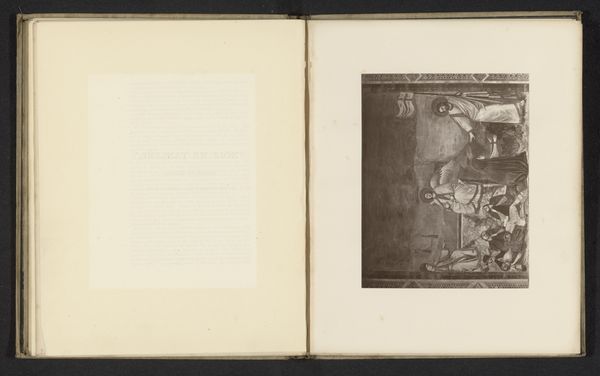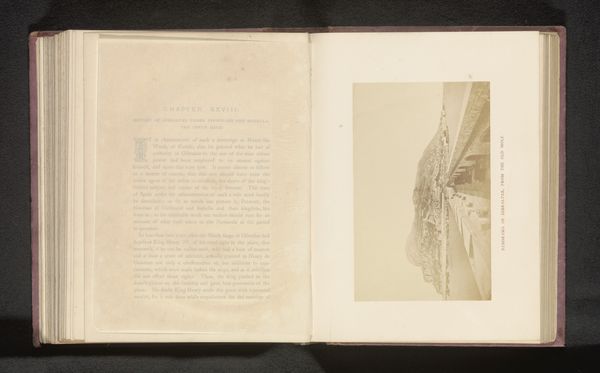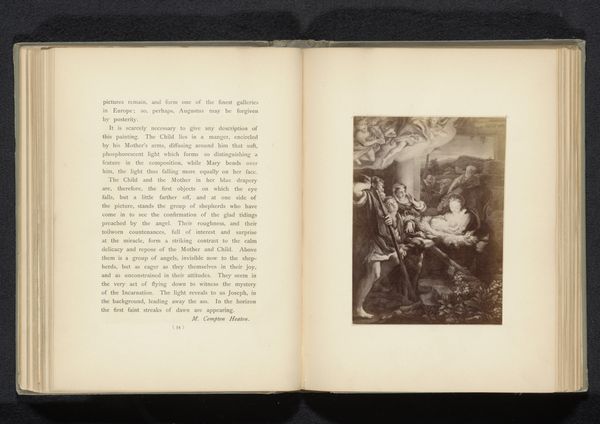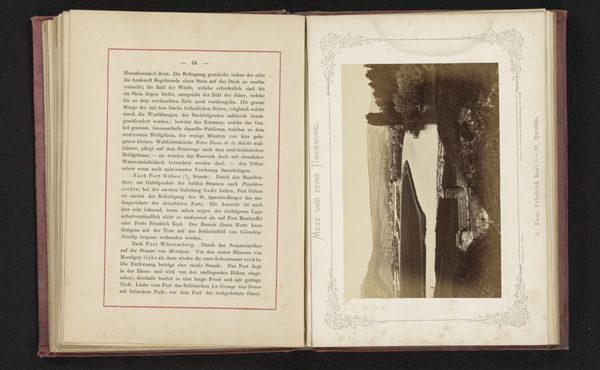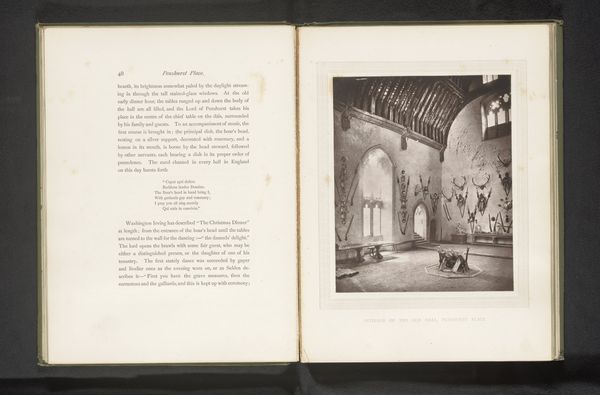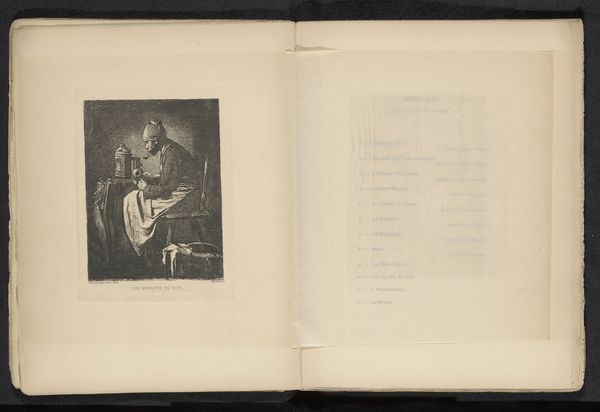
Grafmonument van Antonio Canova in de Santa Maria Gloriosa dei Frari te Venetië c. 1882 - 1892
0:00
0:00
print, photography, sculpture
#
portrait
# print
#
landscape
#
photography
#
ancient-mediterranean
#
sculpture
#
history-painting
Dimensions: height 115 mm, width 91 mm
Copyright: Rijks Museum: Open Domain
This is a photograph of the tomb of Antonio Canova, located in the Santa Maria Gloriosa dei Frari in Venice. Though Canova designed it himself, it was made after his death by his students, largely from marble. The sheer scale of the tomb, and the skill required to carve such a vast quantity of stone, speaks volumes about Canova's status. Marble, historically prized for its beauty and durability, immediately communicates prestige. But beyond the material itself, the labor involved in quarrying, transporting, and carving such massive blocks is truly significant. It represents an immense investment of time and resources, reflecting the wealth and power of Canova's patrons and admirers. The pyramidal form of the monument, borrowed from ancient Egyptian funerary architecture, adds another layer of meaning. These choices elevated Canova to the status of a pharaoh, and the neoclassical style nods to the ideals of beauty and order valued during the Enlightenment. Considering the materials, making, and social context allows us to fully appreciate the meaning and impact of this artwork, challenging traditional distinctions between fine art and craft.
Comments
No comments
Be the first to comment and join the conversation on the ultimate creative platform.
